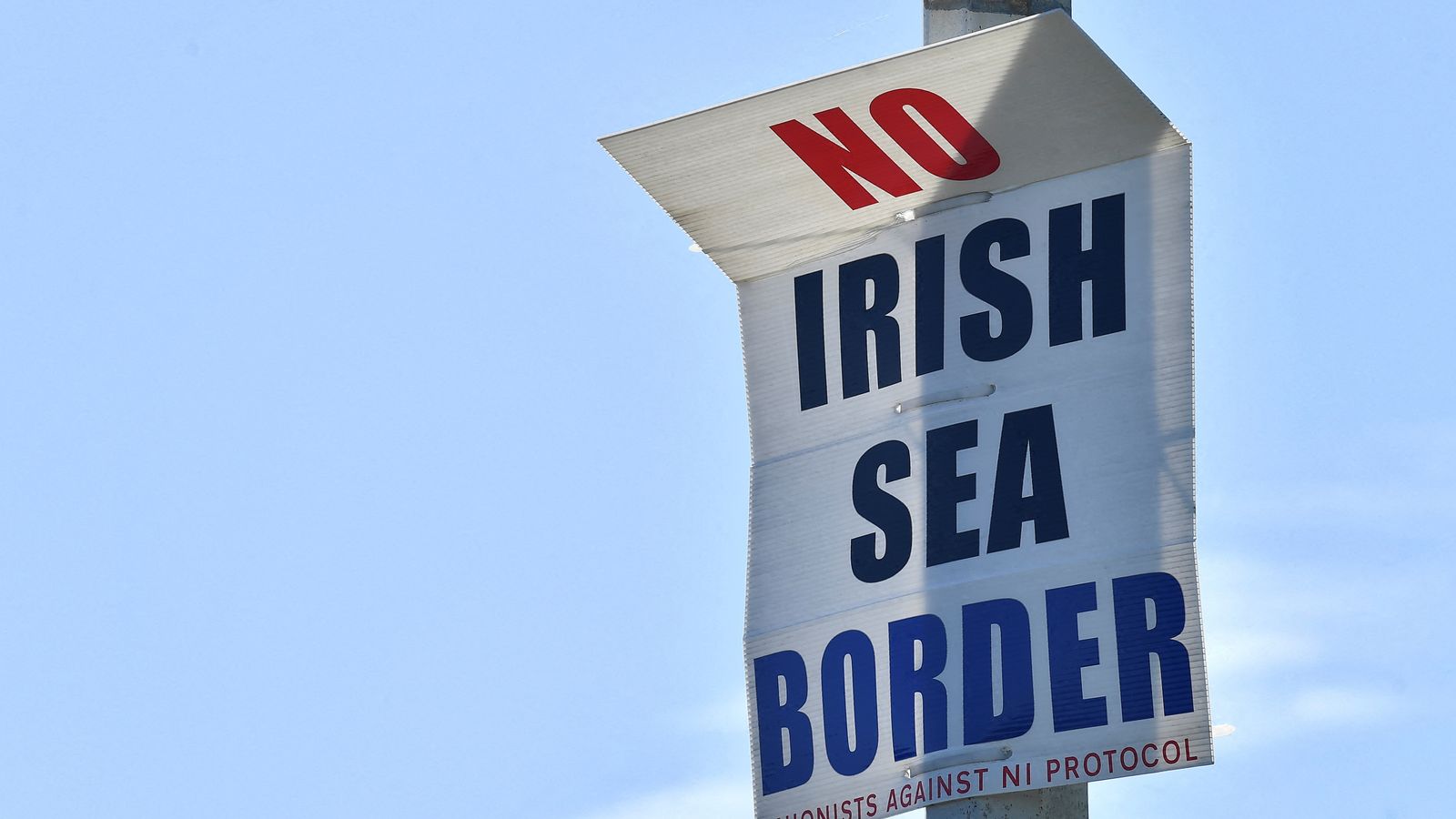MPs to debate ‘Stormont brake’ as key part of new Brexit deal comes to the Commons

MPs will debate a motion next week on the so-called “Stormont brake” – a key part of the new Brexit deal agreed between the UK and EU attempting to solve issues in Northern Ireland.
Leader of the House Penny Mordaunt confirmed the move in the Commons, saying the debate on one of the main elements of the Windsor Framework would take place on Wednesday and the detail of the legislation would be published on Monday.
Politics live: Budget warning of ‘lost decade’ for living standards
The Windsor agreement was announced by Prime Minister Rishi Sunak and European Commission President Ursula Von der Leyen at the end of last month in the hope of solving ongoing problems with the Northern Ireland Protocol – the post-Brexit arrangement designed to prevent a hard border being reintroduced on the island of Ireland.
While both sides had signed up to the initial deal, it led to trade barriers being created between Great Britain and Northern Ireland, and the Democratic Unionist Party (DUP) refused to form an executive at the Stormont Assembly until the protocol was scrapped, leaving the region without an administration.
Please use Chrome browser for a more accessible video player
1:02
After the Windsor Framework was announced, DUP leader Sir Jeffrey Donaldson said there were still ‘some issues of concern’ that need to be looked at.
It is still not clear if the DUP will accept the replacement, as it has concerns about Northern Ireland still having to follow some EU good laws – something the party believes threatens their place within the UK’s internal market and damages their sovereignty.
But the government is hoping the Stormont brake – allowing them to block any changes to or newly created EU goods laws – will provide enough reassurance.
This is perhaps the most politically significant element of the Windsor Framework, which Rishi Sunak says “safeguards sovereignty for the people of Northern Ireland”.
Announcing the plan in February, the PM said a “minimum” number of EU laws would have to remain in place post-Brexit “to avoid a hard border with Ireland and allow Northern Irish businesses to continue accessing the EU market”.
But he agreed with the EU that members of the Northern Ireland Assembly would have a say on any changes to EU law by offering them the Stormont brake.
If 30 members of the NI Assembly across two parties vote against a change or new law, the brake is pulled, it gets stopped and the Westminster government steps in.
They will argue out the case with the EU in a joint committee and decide whether it should be adopted across the whole of the UK, or be vetoed – meaning it would not come into force anywhere across the country.
However, it is not yet clear what happens if the two sides cannot agree, with the documents published so far only saying it would be solved through a process of “independent arbitration”.
Speaking about the measure on Tuesday, DUP leader Sir Jeffrey Donaldson said: “We must be clear that any mechanism exercised by 30 MLAs (members of the Northern Ireland Assembly) is effective in law and will allow locally elected representatives of the people of Northern Ireland to determine whether amended or new laws are implemented.
“We cannot have a situation where Northern Ireland diverges from its most important market that being the rest of the United Kingdom.”
Advertisement
Conservative Brexiteers have been widely supportive of the framework so far, with Steve Baker – now a Northern Ireland minister – telling Sky News it “restores Northern Ireland’s place in the union”.
He added: “I think this is a win and I think it’s very important in politics to know when you’ve had a win-win solution for all sides – bank it and move forwards… this is a time to bank what is a radical improvement for the people of Northern Ireland.”
But former cabinet minister Jacob Rees-Mogg warned backbench Brexiteers would follow the DUP’s lead on whether to approve it.
And former Prime Minister Boris Johnson – who signed the UK up to the original post-Brexit deal – said he would find it “very difficult” to vote for the agreement.
He said the government should have stuck to a bill created by his administration that could unilaterally scrap parts of the protocol without agreement from the EU, despite the fact it led to legal challenges from the EU.
Please use Chrome browser for a more accessible video player
1:06
The former prime minister says he hopes the deal will work, but will continue to campaign for his own vision of Brexit.
There had been question marks over MPs would get a vote over any of the measures, despite Prime Minister Rishi Sunak promising MPs could have their say.
But last week, Northern Ireland secretary Chris Heaton Harris said there would be a vote in Parliament in the coming weeks.